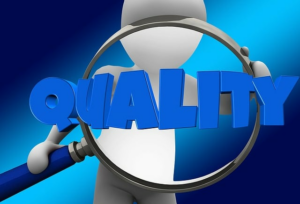Are you torn between the Series 7 and Series 99 certifications? Wondering which one will truly reign supreme in the financial industry? Well, let me shed some light on this conundrum.
Picture this: you’re standing at a crossroads, with one path leading to the Series 7 and the other to the Series 99. Each certification offers unique opportunities for career advancement and job prospects.
In this article, we’ll delve into the key differences, exam formats, job opportunities, and more to help you make an informed decision.
So, let’s navigate this financial certification maze together and find out which one is truly the best fit for you!
Key Takeaways
- Series 7 is a prestigious and comprehensive certification that covers investments, options, and securities regulations.
- Series 99 focuses on the operational aspects of the financial industry and is important for back-office roles.
- Series 7 offers more job opportunities and is highly recognized and sought after by employers.
- Having both Series 7 and Series 99 certifications expands career prospects and gives a competitive advantage in the financial industry.

Key Differences Between Series 7 and Series 99
One key difference between Series 7 and Series 99 is the level of authority they grant to financial professionals.
The Series 7 certification, also known as the General Securities Representative Exam, is considered one of the most prestigious and comprehensive exams in the financial industry. It covers a wide range of topics, including investments, options, and securities regulations. With a Series 7 certification, you can work as a registered representative, allowing you to buy and sell securities on behalf of clients.
On the other hand, the Series 99 certification, also known as the Operations Professional Exam, focuses more on the operational aspects of the financial industry, such as trade processing, record keeping, and customer account maintenance. While it may not have the same level of authority as the Series 7, it is still an important certification for individuals looking to work in back-office roles within financial firms.
In terms of job prospects, having a Series 7 certification opens up more opportunities for financial professionals, as it is highly recognized and sought after by employers. However, the difficulty level of the Series 7 exam is higher compared to the Series 99, due to its comprehensive coverage of various financial topics.

Exam Format and Requirements for Series 7 and Series 99
To understand the differences between the exams, you need to know the format and requirements for both the Series 7 and Series 99.
Here is a breakdown of the exam format and requirements for each:
Series 7:
- The Series 7 exam consists of 125 multiple-choice questions.
- It is a six-hour exam, divided into two three-hour sessions with a 30-minute break in between.
- A passing score is 72%, and the exam covers a wide range of topics, including investment products, regulations, and customer interactions.
Series 99:
- The Series 99 exam consists of 50 multiple-choice questions.
- It is a two-hour exam, and a passing score is 68%.
- The exam focuses specifically on operations, regulations, and ethical considerations related to securities operations professionals.
When studying for these exams, it is crucial to have the right study materials. Ensure you have access to comprehensive textbooks, practice exams, and online resources to adequately prepare for both the Series 7 and Series 99 exams.

Job Opportunities and Career Advancement With Series 7 and Series 99
When considering job opportunities and career advancement, you’ll find that having both the Series 7 and Series 99 certifications can significantly enhance your prospects in the securities industry.
These certifications demonstrate your expertise in different areas of the financial sector, increasing your value to employers and opening doors to a wider range of job prospects.
With the Series 7 certification, you’ll be qualified to work as a general securities representative, allowing you to sell a variety of financial products to clients.
On the other hand, the Series 99 certification focuses specifically on operations professionals, providing you with the knowledge and skills needed to navigate the regulatory landscape.

The Importance of Series 7 and Series 99 Certifications in the Financial Industry
If you’re looking to excel in the financial industry, having both the Series 7 and Series 99 certifications is essential. These certifications are highly regarded and can open doors to numerous career opportunities.
Here are three reasons why these certifications are so important:
-
Enhanced Knowledge: The Series 7 and Series 99 certifications cover different areas of the financial industry. Series 7 focuses on general securities sales, while Series 99 specializes in operations professionals. By obtaining both certifications, you gain a comprehensive understanding of various aspects of the industry, making you a well-rounded professional.
-
Expanded Career Prospects: Having both certifications significantly expands your career prospects. Employers value individuals who possess a diverse skill set and are capable of handling different roles within the financial industry. With Series 7 and Series 99 certifications, you can explore opportunities in sales, compliance, operations, and more.
-
Competitive Advantage: The financial industry is highly competitive, and having these certifications gives you a competitive edge. Employers often prioritize candidates with Series 7 and Series 99 certifications, as it demonstrates your commitment to professional development and your ability to navigate complex financial regulations.

Tips for Choosing Between Series 7 and Series 99 Certification
One important factor to consider when choosing between the Series 7 and Series 99 certifications is the specific career path you want to pursue.
Both certifications are vital in the financial industry, but they cater to different roles. The Series 7 certification is geared towards professionals who want to become general securities representatives, while the Series 99 certification is designed for individuals who wish to become operations professionals in the industry.
When studying for these exams, it is crucial to choose the right study materials. For the Series 7 exam, popular options include Kaplan and STC, which offer comprehensive study guides, practice exams, and online resources. On the other hand, the Series 99 exam can be prepared for using study materials provided by the Financial Industry Regulatory Authority (FINRA).
Ultimately, passing these exams requires diligent study and thorough understanding of the content covered.
Frequently Asked Questions
How Long Does It Take to Study and Prepare for the Series 7 and Series 99 Exams?
On average, it takes about 150-200 hours to study and prepare for the Series 7 exam and around 40-60 hours for the Series 99 exam.
To successfully tackle these exams, you’ll need to utilize various study resources such as textbooks, online courses, practice exams, and flashcards.
It’s important to create a study schedule and stay disciplined throughout the process.
With the right dedication and study materials, you can confidently ace both exams.
Are There Any Prerequisites or Qualifications Required to Take the Series 7 or Series 99 Exams?
Before diving into the debate between Series 7 and Series 99, let’s address the question at hand: prerequisites and qualifications.
To embark on the journey towards these financial certifications, you must meet certain criteria. For the Series 7 exam, you’ll need sponsorship from a FINRA member firm, while the Series 99 exam requires sponsorship from a broker-dealer. Both certifications demand dedication, knowledge, and a strong work ethic.
Now, let’s explore which one reigns supreme in the financial world.
Can Individuals With a Series 7 Certification Work in the Same Roles as Those With a Series 99 Certification, and Vice Versa?
Individuals with a Series 7 certification can work in similar roles as those with a Series 99 certification, and vice versa. Both certifications are highly regarded in the financial industry and offer job prospects in areas such as investment banking, securities trading, and sales.
Series 7 certified professionals focus on general securities while Series 99 certified professionals specialize in operations for broker-dealers. Ultimately, the choice between the two certifications depends on your specific career goals and interests.
Do Employers Value One Certification Over the Other When Hiring for Financial Industry Positions?
When it comes to financial industry positions, employers do value one certification over the other. Professionals with a Series 7 certification tend to earn more than those with a Series 99 certification.
This is because the Series 7 certification is more comprehensive and covers a wider range of financial products and services. Additionally, there is a higher demand for professionals with Series 7 certification compared to those with Series 99 certification, as it is considered a more prestigious and versatile credential in the industry.
Are the Series 7 and Series 99 Certifications Recognized Internationally, or Are They Specific to the United States?
The series 7 and series 99 certifications are specific to the United States and are not recognized internationally. These certifications are issued by the Financial Industry Regulatory Authority (FINRA). They are required for individuals who want to work in certain financial industry positions in the United States.
While they may not be recognized internationally, these certifications are highly valued and respected within the US financial industry. Employers often prioritize candidates who hold these certifications as they demonstrate a strong understanding of securities regulations and industry knowledge.
Conclusion
In conclusion, when it comes to deciding between the Series 7 and Series 99 certifications, it’s important to consider your career goals and aspirations.
Both certifications offer unique opportunities for job advancement and growth in the financial industry. However, the Series 7 certification has long been regarded as the pinnacle of financial certifications, reigning supreme in the eyes of many professionals.
While the Series 99 certification may be a viable option for certain career paths, it may not hold the same level of prestige and recognition.
Ultimately, the decision lies in your hands, and it’s crucial to weigh all the factors before making a choice.






















































